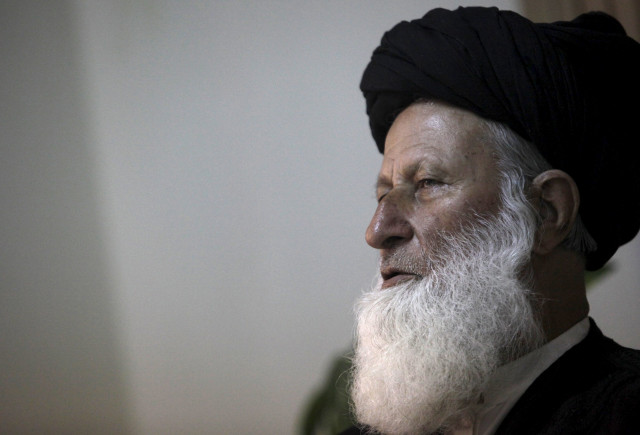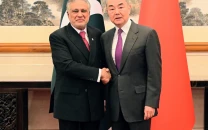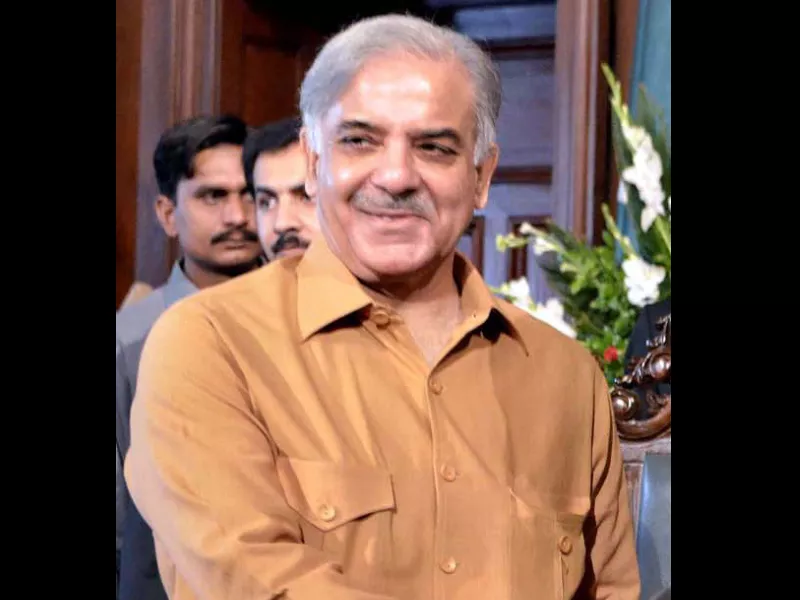Non-Muslims entitled to follow own personal laws: CII
Council endorses enactment of Hindu, Christian marriage and divorce laws

Cill chairman Maulana Sheerani. PHOTO: REUTERS
According to the council’s annual report for 2013-14, the CII also endorsed the enactment of Hindu marriage laws and Christian marriage and divorce laws.
The perfect world for CII members would be one without women
Meanwhile, a member of the council explained that in accordance with the Shariah, the CII accepted everything permissible for non-Muslims under their religions for marriages or divorces. However, the council observed that if it was empowered, it could have proposed an amendment to the Hindu Marriage Bill for reducing the age of puberty, currently set at 18. Citing Hindu scriptures, the CII stated that this had not been precisely determined in the Hindu religion.

“All non-Muslims in an Islamic state are at liberty to follow their own religions,” the report stated. “Likewise, in accordance with the constitution of Pakistan, they are also entitled to exercise their religious freedom”.
Citing an example from the life of the Holy Prophet (PBUH) to elaborate its point of view, the report stated that the Prophet (PBUH) had ruled in accordance with the provisions of Holy Torah while deciding a case against a Jew.
Senior CII member Abdullah said that the draft of the Hindu Marriage Bill is not against the Islamic principles. He told The Express Tribune that it was a positive decision on the part of the council.
“The Hindu Marriage Bill is basically an administrative law to regulate marriages and other relevant family affairs of Hindus,” he explained. There was a need to recommend the draft of the proposed legislation as there was no law available to meet this requirement of the Hindu community in Pakistan, he added. “There is no harm to Muslims if the draft approved by the CII becomes a piece of legislation.”
CII has authority to issue fatwa on any issue, claims Maulana Sheerani
The drafts of the Christian Marriage and Divorce (Amendment) Bill, 2012 and the Hindu Marriage Bill, 2013 were both referred to the council by the ministry of religious affairs in 2013 seeking its views.
Originally both bills were drafted by the National Commission on the Status of Women (NCSW) in collaboration with the ministry of human rights in 2012. The ministry of religious affairs said that both bills had been drafted in consultation with top representatives of Hindu and Christian communities.
According to the report, matters pertaining to non-Muslims’ marriages and divorces had been under council’s review since 1991-92.
The first time the council referred the matter in its annual report 1991-92, categorically stating that it would not give any opinion on the personal laws of non-Muslims as it had been barred from doing so under Article 227 (3) of the Constitution.
The CII had also examined the Parsi (Zoroastrians) Marriage and Divorce Act of 1936 after it was referred to the council by the government in 1998-99 to approve some amendments in the law.
At that time, the council had maintained in its annual report that it had no objection to the amendments as they related to the personal laws of Zoroastrians.
However, the council was compelled to express its views on Hindu marriage laws and Christian marriage and divorce laws after the ministry of religious affairs sought its opinion on the drafts of the two bills.
The council also consulted Hindu representatives on the bills before formulating its recommendations on the issue in 2013-14.
A Christian clergyman, Rev Father Rehmat Hakim, was invited by the council, but he declined the invitation and maintained that their religious leaders were already discussing the matter among themselves.
CII proposes husbands be allowed to 'lightly beat'
But a Christian member of National Assembly (MNA), Aasiya Nisar and a Hindu Senator, Hemon Das – both affiliated with the Jamiat Ulama-e-Islam-Fazl (JUI-F) – along with Hindu MNA Dr Ramesh Kumar Vankwani of Pakistan Muslim League-Nawaz (PML-N) and another Hindu leader, Deep Chand Chohan from Peshawar, participated in the council’s deliberations.
Senator Das and Chohan supported the bill, saying that it had been drafted in consultation with their religious leaders. But Dr Vankwani took the credit for drafting the bill and told the council that Justice (retd) Baghwan Das had also joined him in preparing the proposed law.
Aasiya Nisar, however, objected on the Christian marriage and divorce bill and criticised the NCSW for drafting the bill in haste. The MNA told the council that the Christian Council would formulate its opinion on the proposed legislation which would later be referred to the CII.
Published in The Express Tribune, January 9th, 2017.



















COMMENTS
Comments are moderated and generally will be posted if they are on-topic and not abusive.
For more information, please see our Comments FAQ